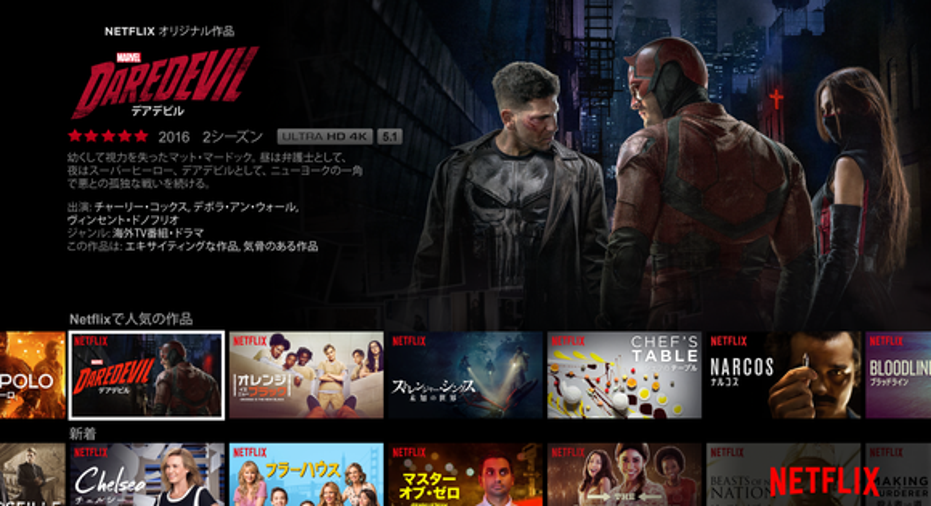Netflix CEO Reed Hastings Gives the Global View

Content has increasingly become about serving the global market and few companies understand that like Netflix (NASDAQ: NFLX). The company, which had 47 million subscribers in the United States as of October 2016, has 39 million and counting in the nearly 200 countries it operates in outside of its home market. That gives CEO Reed Hastings a unique view of the global market and he shared some of his thoughts during a keynote address at the 2017 Mobile World Congress in Barcelona on Monday.
Interviewed by Francine Stock, a host on the BBC, Hastings opened his remarks by talking about his company's first-ever Oscar win. That victory in short-subject category was for The White Helmets, a look at rescue workers in war-torn Syria, a film that speaks to global appeal.
"It's also exciting to release content globally," he said. "We've always had the ambition to make some of the best content the world had ever seen and make it available simultaneously." That, he explained, leads to a global social media conversation.
Netflix localizes some of its content for each international market. Image source: Netflix.
How people watch is changing
Hastings said he expects all linear networks to adopt Netflix's binge-viewing model that launches all episodes in a season at once. He also predicted that all video will eventually move to the internet in some fashion. "We want to stay at the forefront, continue to innovate," he said. "We have so much we want to share with the world,"
Stock prompted Hastings to talk about how his company is working to ensure quality playback all around the world. He explained that Netflix is spending money on improving how it delivers shows in order to make buffering an out-of-date concept, like the slowness once associated with dial-up internet.
"We're investing very heavily," he said, "so that the experience is just instant."
The CEO avoided political issues around the internet, which vary from country to country. Instead, he chose to focus on how technology -- both from his company and others -- has changed the viewing experience, specifically on mobile.
"What we're going to see is that a number of companies are offering new ways to deliver data to consumers," Hastings said. "Maybe it's unlimited data, but at lower speeds."
Hastings explained that his company has invested heavily in video coding to deliver high-quality video in more efficient ways. "We want to be very flexible to be available on any screen size you have," he said.
Piracy may not be a problem
Hastings said he believes the best way to fight piracy is to offer a low-cost service with so many things to watch that there's little reason to steal content. He referenced Netflix's launch in the Netherlands, calling that country a "hotbed of piracy," saying that since his company entered the market that has improved.
"Consumers are turning to legal inexpensive solutions like Netlfix," he said. "Our challenge is to offer such a great service at a low price that the temptation to pirate goes away."
Netflix is getting more global
When Netflix first started expanding around the world, it was largely an American service with some translation. Now, as the company has grown globally, it has expanded with more programming originating in the markets it now serves.
"We're passionate about collecting the world's best content and sharing it, but we have a long way to go," he said. "That's an evolving target," admitted the CEO, who rattled off a list of localized content, noting that much of it does well in the U.S. and other markets as well as its home territory.
This is good for consumers
Hastings said that as television and movies move to the internet, it's going to continue to benefit viewers. He said it's also good for creative folks because the global market increases the ability to find an audience."Lots of new shows that could not have gotten made before are now out there," he said.
Hastings promised that over the next five years, the changes would be dramatic for Netflix customers, though he admitted he did not know what form that would take. He pointed out that DVDs were still the company's dominant method of delivering content as recently as 2010.
"The story of the internet is connecting people everywhere," he said. "What's amazing about technology is that it's very hard to predict... What we try to do is learn and adapt rather than commit to any one technology."
What does this mean for Netflix's business?
As long as the company keeps up with delivery technology, it has a well-protected business model because it owns so much popular, proprietary content. While Hastings said that the company's storytelling was "really just beginning," in reality the company becomes stronger with each new show it adds to the platform. That does not mean there won't be increased competition, but it does suggest Netflix will be well-positioned to compete no matter how content is consumed.
10 stocks we like better than NetflixWhen investing geniuses David and Tom Gardner have a stock tip, it can pay to listen. After all, the newsletter they have run for over a decade, Motley Fool Stock Advisor, has tripled the market.*
David and Tom just revealed what they believe are the 10 best stocks for investors to buy right now... and Netflix wasn't one of them! That's right -- they think these 10 stocks are even better buys.
Click here to learn about these picks!
*Stock Advisor returns as of February 6, 2017
Daniel Kline has no position in any stocks mentioned. The Motley Fool owns shares of and recommends Netflix. The Motley Fool has a disclosure policy.



















